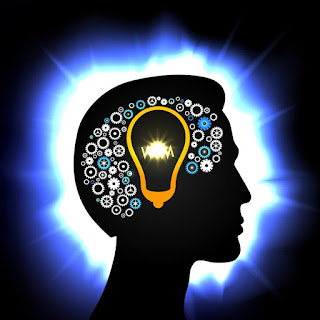Cardiovascular Chronicles: Understanding the Diverse Types of Heart Diseases
The human heart, with its rhythmic beat, is a vital organ responsible for pumping blood and oxygen throughout the body. Unfortunately, it is also susceptible to a wide range of diseases that can affect its function and, in some cases, lead to life-threatening conditions.
In
this article, we will embark on a journey through the cardiovascular
chronicles, delving into the diverse types of heart diseases, their causes,
symptoms, and treatments.
Introduction to Heart Diseases
Heart
diseases, collectively known as cardiovascular diseases, encompass a broad
spectrum of conditions that affect the heart and blood vessels.
These
conditions are a leading cause of death worldwide, making them a significant
public health concern.
So,
what are the differenttypes of heart diseases? Understanding the different types of heart
diseases is essential for prevention, diagnosis, and treatment.
Let’s
begin!
Coronary Artery Disease (CAD)
Coronary
artery disease (CAD) is the most prevalent type of heart disease. It occurs
when the coronary arteries that supply blood to the heart become narrowed or
blocked due to the buildup of plaque, composed of cholesterol and other
substances. This restriction in blood flow can lead to chest pain (angina),
heart attacks, and heart failure.
Heart Failure
Heart
failure is a condition where the heart's ability to pump blood is weakened.
This can result from various factors, including CAD, high blood pressure,
diabetes, or heart valve diseases. Symptoms may include shortness of breath,
fatigue, and fluid retention. Heart failure is typically managed with
medications, lifestyle changes, and, in some cases, surgical interventions.
Arrhythmias
Arrhythmias
are abnormalities in the heart's rhythm. They can manifest as irregular
heartbeats, palpitations, or a fluttering sensation. Arrhythmias range from
benign conditions to potentially life-threatening ones. Treatment may involve
medications, lifestyle modifications, or medical procedures like ablation.
Valvular Heart Disease
Valvular
heart disease affects the heart's valves, which regulate the flow of blood.
Conditions like aortic stenosis, mitral regurgitation, and tricuspid atresia
can occur when these valves fail to function properly. Surgery to repair or
replace damaged valves is often necessary to restore normal heart function.
Cardiomyopathies
Cardiomyopathies
are diseases of the heart muscle itself. These conditions can result from
various causes, such as genetics, infections, or excessive alcohol consumption.
Cardiomyopathies lead to the weakening of the heart muscle and can result in
heart failure. Treatment may involve medications, lifestyle changes, and, in
severe cases, heart transplantation.
Congenital Heart Defects
Congenital
heart defects are structural abnormalities in the heart that are present at
birth. These defects can range from mild conditions that require no treatment
to severe malformations that demand surgical intervention in infancy or
childhood. Advances in pediatric cardiology have significantly improved the
prognosis for children born with congenital heart defects.
Infectious Heart Diseases
Infectious
heart diseases can result from bacterial, viral, or fungal infections that
affect the heart or its surrounding structures. Conditions like endocarditis,
pericarditis, or myocarditis can lead to serious cardiac complications.
Treatment typically involves antibiotics or antiviral medications, depending on
the specific pathogen involved.
Prevention and Management
Preventing
heart disease and managing its risk factors is crucial to reducing the burden
of cardiovascular conditions. Lifestyle modifications, such as a heart-healthy
diet, regular exercise, smoking cessation, and stress management, play a
significant role in prevention.
Regular
check-ups with healthcare providers can help identify risk factors like high
blood pressure, high cholesterol, and diabetes. These conditions can be managed
with medications and lifestyle changes to reduce the risk of heart disease.
Conclusion
The
cardiovascular chronicles are vast, encompassing a wide array of heart diseases
that impact millions of individuals worldwide. Understanding the diverse types
of heart diseases, their causes, symptoms, and treatments is essential for both
prevention and management.
With
advances in medical science, early detection, innovative treatments, and
lifestyle changes, many heart diseases can be effectively managed or even
prevented. This knowledge empowers individuals to take charge of their heart
health and make informed choices to ensure a healthy, beating heart for years
to come.



Comments
Post a Comment